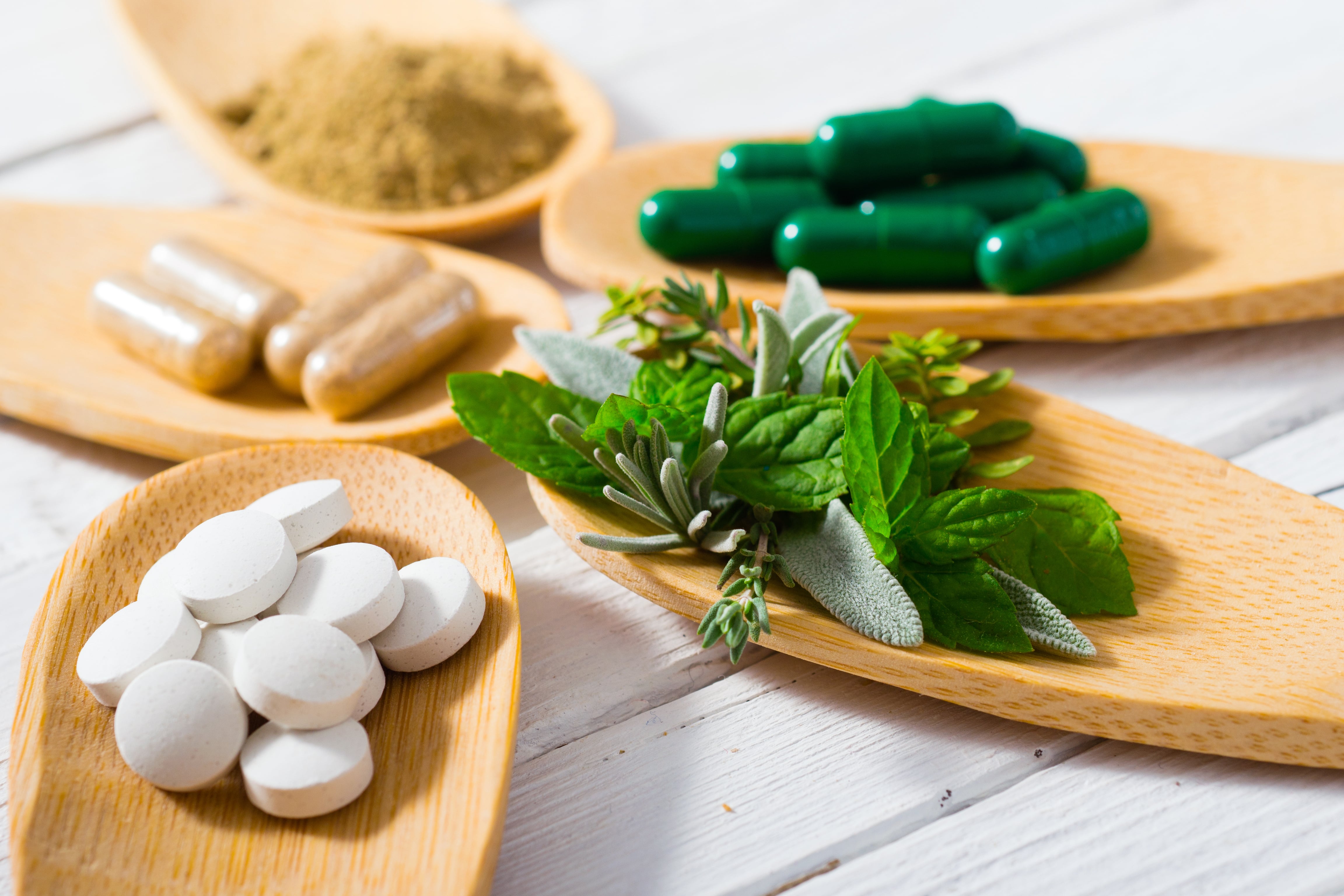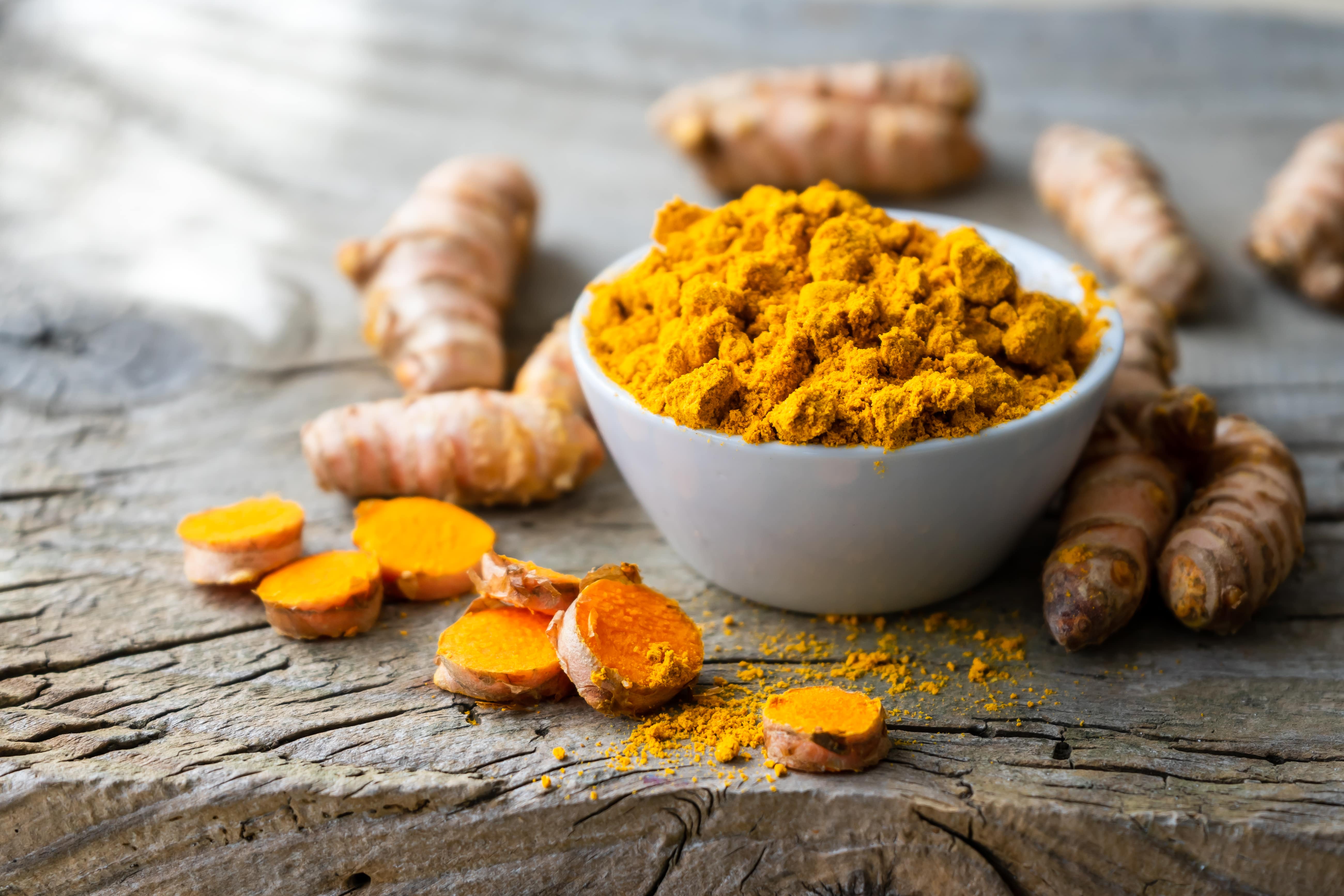Humans have a long and storied history of using botanical ingredients to remedy a range of health concerns. There are many holistic remedies passed down through families from generation to generation, and most of the formulations still recommended in Traditional Chinese Medicine (TCM) and Ayurveda today date back thousands of years. But botanical ingredients have never been as enthusiastically embraced by the mainstream as they are today, says Holly Johnson, Chief Science Officer, American Herbal Products Association (AHPA). “Consumers have historically used herbs to support their health and wellbeing, and the recent increase in popularity of familiar botanical ingredients such as elderberry and echinacea has paved the way for consumers to explore other botanicals, driving product innovation and accessibility.”
This growing consumer interest has sent sales soaring. Grand View Research reports that global sales for botanical ingredients will reach $281.42 billion by 2030, growing at a CAGR of 6.9%.
Zak Benmerzouga, Business Director, AIDP, notes, “While immunity surged during the pandemic, it has transitioned into a broader emphasis on preventive wellness. We see proactive and holistic wellness as a new trend among the younger generation in several areas including immunity, beauty from within and digestive health. Finally, metabolic health has emerged as a pivotal trend in the supplements space. As drug companies target weight loss and diabetes, consumers are turning to supplements for less costly, natural solutions. Throughout these trends, organic ingredients continue to be preferred by both consumers and up-and-coming brands in the supplements and functional food space."
Another factor driving growth is a shift in perception about pharmaceutical medications, says James Roza, Chief Scientific Officer, Layn Natural Ingredients. “Wariness or dissatisfaction with prescriptive and over-the-counter medications because of cost, side effects, lack of efficacy, and concerns about long-term use, are leading many consumers to look for natural alternatives. These attitudes have been exacerbated since the pandemic, fueled by a distrust for big pharma, a do-it-yourself type attitude promoted by social media ambassadors, and a yearning to get back to a simpler, cleaner and healthier lifestyle.”
Also pointing to socials as a driving force: “Social media plays a role in awareness, with different products touted by influencers coming across people’s newsfeeds,” says Beth Lambert, CEO, Herbalist & Alchemist. “The information on social media is not always good, but it is influential. People think, If it helps them, maybe it will help me.”
Brick-and-mortar retailers are in a sweet spot to help customers distill out quality ingredients and products from the junk that is often peddled online. “Far and away the #1 factor retailers must look at is quality,” stresses Bob Capelli, Marketing Consultant, BGG World. “Several different entities in the supplement industry, including the consumer brand NOW Foods as well as trade associations like the Natural Algae Astaxanthin Association (NAXA), have been testing supplements bought at retail (generally from Amazon) and finding some horror stories with regards to quality. In the case of astaxanthin, NAXA tested 50 different brands of astaxanthin and only half met the label claim. And the scariest part of this is that some had zero astaxanthin, many had less than half the dosage claimed, and some purported to be natural astaxanthin but were synthetic. That’s bad news for consumers, since synthetic astaxanthin has 20-90 times less antioxidant activity than natural astaxanthin and has never been clinically tested for safety or efficacy. So retailers must make sure they only stock reputable brands that have what they say on the label.”
 Stocking brands with established quality control practices, including third-party testing and certifications, can help ensure customers are getting the best bang for their buck. “I think trust is the key factor—to work with brands that have a history testing and developing valid science to back up their products,” says Cal Bewicke, CEO, Ethical Naturals Inc. “These brands may be a little more expensive, but maintaining quality-oriented supply chains with testing at every step costs money and work.”
Stocking brands with established quality control practices, including third-party testing and certifications, can help ensure customers are getting the best bang for their buck. “I think trust is the key factor—to work with brands that have a history testing and developing valid science to back up their products,” says Cal Bewicke, CEO, Ethical Naturals Inc. “These brands may be a little more expensive, but maintaining quality-oriented supply chains with testing at every step costs money and work.”
Consumers also favor brands that prioritize sustainability, traceability, and transparency. “Individuals who are buying herbal supplements tend to be health conscious and as a result are very concerned about the presence of heavy metals, pesticides, and other harmful chemicals that can be found in supplements,” says Brian Keenan, ND, DOM, Education Manager, Ayush Herbs. “Retailers should be vetting their supplement companies to ensure that they meet the basic requirements of disclosing their quality control practices, preferably making access to Certificates of Analysis for products easy.”
Sustainability is especially important in this space, asserts Wilson Lau, President, Nuherbs. “We have to be accurately aware of how climate change and how our increased use of certain herbs may impact availability. Climate change will be the biggest factor in our lifetimes that will disproportionately impact things that humans grow, whether its wheat, ginger, or ginseng. We at Nuherbs are looking at innovations in how to improve quality, reduce waste, and increase yields with the botanicals that we supply. We are looking at becoming better, more efficient producers.”
It helps to be able to point customers to specific sustainability promises or initiatives, adds Shaheen Majeed, Global Managing Director and CEO, Sabinsa. “Today you have to be able to point to significant sustainability efforts, because lacking that commitment is a deal breaker for many consumers, especially younger ones. It’s helpful if you can point to awards the supplier has received for demonstrated sustainability commitment, like Sabinsa has for initiatives such as the Indian Kino tree reforestation program.”
Of course, efficacy is the factor that will earn repeat purchases, so point customers toward products with clinical backing, adds Jennifer Clancy, Global Head of Marketing, Nutriventia. “When looking at the herbal ingredients prominent in condition-specific supplements, visit the ingredient suppliers’ websites and look for studies published specifically on the ingredients. Quality research includes pharmacokinetic studies, pre-clinical studies and of course, human clinical studies.” Clancy also suggests stocking a range of sizes, doses, and delivery formats—especially in high-velocity sellers like turmeric and ashwagandha—to cater to a variety of consumer preferences.
3 sales success strategies
Highlight reviews: “Given the dominance of online shopping, customers have grown accustomed to reviews, even offline," says Keenan. “In the in-person environment, this could simply be a card that highlights a particular product and has either customer or employee reviews.” You can also use social media to highlight customer success stories.
Play up double-duty benefits: “Botanical supplements tend to be condition-specific, but many exert more than one beneficial action in the body or resulting improvement stemming from a prime mechanism of action,” notes Clancy. “Take turmeric for example: It is known to help promote healthy and appropriate inflammation response, and this can help promote quicker muscle recovery post-exercise, as well as protect aging joints from rapid deterioration.”
Game-ify purchases: Creating a loyalty program or rewards system can encourage customers come back for new botanicals, says Maggie McNamara, Marketing Director, Gencor. “Retailers can motivate customers by implementing a unique points program for any plant-based or botanical product purchased. This will encourage repeat purchases and educate consumer on the product benefits and the store's inventory.”
11 trending botanical ingredients
Ashwaghandha: This adaptogen remains popular for stress management, says Clancy, who notes that Nutraventia has two branded ashwagandha extracts: Ashwanova, which is trademarked for use in Australia and New Zealand, and Prolanza, a long-acting extract of 20 withanolides. Both are clinically shown to reduce cortisol, resulting in improved accuracy and recall of memory as well as better sleep duration and quality.
KSM-66 Ashwagandhais backed by numerous studies. Visit the Ashwagandha Experience to learn more about this study-backed ingredient.
 From Vidya Herbs comes Asera, an ashwagandha extract clinically shown to reduce anxiety and depression. Another option: Specnova NooGandha is a cognitive enhancing nootropic focused ashwagandha that retains anti-stress/cortisol benefits but is not sedative. Specnova conducted four studies at Texas A&M showing the ingredient’s efficacy and safety. NooGandha was shown to improve perceptions of fatigue, anxiety and sadness, plus improve cognitive performance in word and picture recall, reaction time and focus. This research has been submitted for publication.
From Vidya Herbs comes Asera, an ashwagandha extract clinically shown to reduce anxiety and depression. Another option: Specnova NooGandha is a cognitive enhancing nootropic focused ashwagandha that retains anti-stress/cortisol benefits but is not sedative. Specnova conducted four studies at Texas A&M showing the ingredient’s efficacy and safety. NooGandha was shown to improve perceptions of fatigue, anxiety and sadness, plus improve cognitive performance in word and picture recall, reaction time and focus. This research has been submitted for publication.
 Berberine: “Awareness of glucagon-like peptide 1 or GLP-1 on the pharma side has undoubtedly brought shoppers to the industry looking for plant-based, natural alternatives that could also support this hormone, known to release insulin and support healthy weight management,” says Rob Brewster, President, Ingredients by Nature. “Berberine has made headway in this category.”
Berberine: “Awareness of glucagon-like peptide 1 or GLP-1 on the pharma side has undoubtedly brought shoppers to the industry looking for plant-based, natural alternatives that could also support this hormone, known to release insulin and support healthy weight management,” says Rob Brewster, President, Ingredients by Nature. “Berberine has made headway in this category.”
Citrus flavonoids: Another option for blood sugar and weight control is Eriomin, a proprietary blend of citrus flavonoids, says Brewster. “ Eriomin has been shown to boost GLP-1 by up to 22% in three gold-standard human clinical trials.”
Curcumin: “Curcumin is one of the most popular botanical ingredients for wellness and beauty," says McNamara. However, she cautions that curcumin is not well-absorbed by the body so look for products that support bioavailability, such as Gencor’s branded ingredient HydroCurc. It has been clinically shown to deliver significantly higher plasma curcuminoid concentrations than raw curcumin products, thanks to Gencor's patented LipiSperse delivery system.
Sabinsa offers the branded curcumin extract C3 Complex as well as a high absorbancy cucumin extract branded as C3 Reduct, which contains 95% Tetrahydrocurcuminoids, notes Majeed. “This is the most active metabolite of curcumin, with greater absorption, better antioxidant activity, better pharmacological activity, a higher stability at physiological pH, and best of all no color, which resolves a manufacturing headache caused by staining from vividly colored curcumin.”
Fenugreek: “Fenugreek has been linked to many health benefits, including testosterone support, muscle strength, libido, energy, and support for healthy blood sugar levels,” notes McNamara. Gencor offers three fenugreek extracts with targeted benefits: 1) Testofen, which is shown to help men maintain healthy levels of free testosterone that are already within the normal range, which, in turn, supports multiple bodily functions; 2) Libifem, a female-focused fenugreek extract shown to support body composition, strength, and power, plus aid in reducing menopausal symptoms and improving sexual health; 3) Trigogen, a standardized extract shown to aid healthy blood sugar levels, a healthy blood sugar response, and gut health.
Ocimum tenuiflorum (Tulsi): The branded ingredient Holixer shows effectiveness in managing acute and chronic stress in human clinical research. Benmerzouga notes, “Stress and anxiety remain paramount concerns among Millennials and Gen Z, a steadfast reality for years now as these generations make up an increasing fraction of the workforce.”
Phytocannabinoids: Brands are combining cannabidiol (CBD) and other phytocannabinoids with botanicals to appeal to a broad audience. cbdMD recently launched hemp-derived Delta 9 THC + CBD gummies: UPLIFT, ELEVATE, and RELAX to provide users with a gentler experience and a daily routine for energy, focus, and stress relief.
Also innovating in the space: Reserve Sleep gummies from +PlusCBD combine sleep-inducing melatonin with the calming benefits of cannabinoids like CBD, THC, and CBN to help relax the mind and body for a deep and restful sleep.
Saffron: Consumers are seeking better sleep, so companies may be looking to offer multi-benefit products to add (or highlight) sleep benefits. An ingredient that can help: Saffr'Activ from AIDP, is made from a saffron (Crocus sativus) extract and aimed at reducing stress and anxiety with a promoted "side effect" of causing more restful sleep.
Sage: Stratum Nutrition offers Sibelius: Sage, an extract clinically proven to help improve memory and attention. In one study with 20 healthy volunteers (65 to 90 years old), subjects experienced a significant improvement in cognitive performance within one hour. This included the improvement of secondary memory, recognition, recall, accuracy, and speed of attention.
Saw Palmetto: “Many young people are experiencing hair loss due to high-stress lifestyles, and are therefore searching for natural solutions,” says Chandra Sekhar, Global VP of Vidya Herbs. “Our potent ingredient, Vi-Spo, is the first Saw Palmetto extract with human clinical studies demonstrating significant hair density improvements.”
 Turmeric: “Turmeric tops botanical solutions for joint health and management of inflammation response,” says Clancy. She notes that Nutraventia’s TurmXTRA was found in a published randomized, placebo-controlled, parallel group study of 30 active adults to significantly reduce pain post-exercise compared to those in the placebo group.
Turmeric: “Turmeric tops botanical solutions for joint health and management of inflammation response,” says Clancy. She notes that Nutraventia’s TurmXTRA was found in a published randomized, placebo-controlled, parallel group study of 30 active adults to significantly reduce pain post-exercise compared to those in the placebo group.
And in an adjacent category: Bill Chioffi, COO, Nammex, gives mushrooms a nod. “Demand for Lion’s Mane continues to grow in the cognitive support category. In the sports and active nutrition sector we see Cordyceps militaris fueling the energy and recovery formulation intent and people are seeking the vegan benefits of Vitamin D from mushrooms like Maitake.” One key to getting quality mushroom products: “Make sure the brand’s label specifies if the contents are made from mushrooms, or the mushroom’s root system, called mycelium,” advises Chioffi. “They are not the same thing, and have very different levels of active constituents, so transparency is essential in the consumer getting the benefits they expect.” WF










